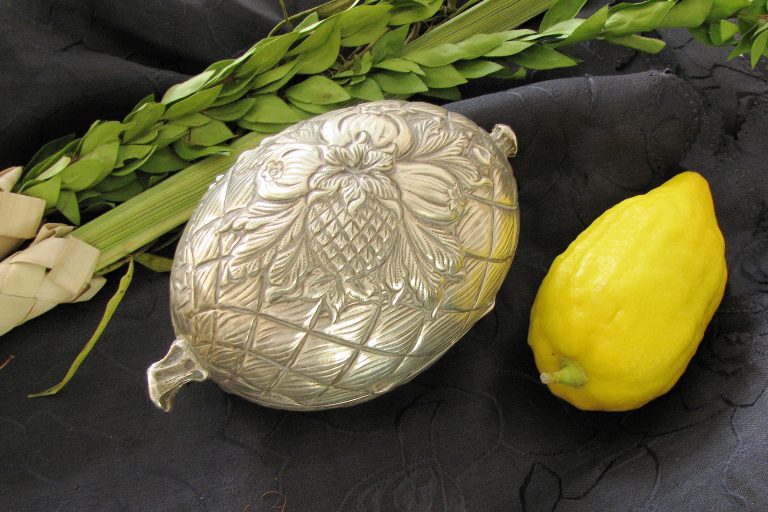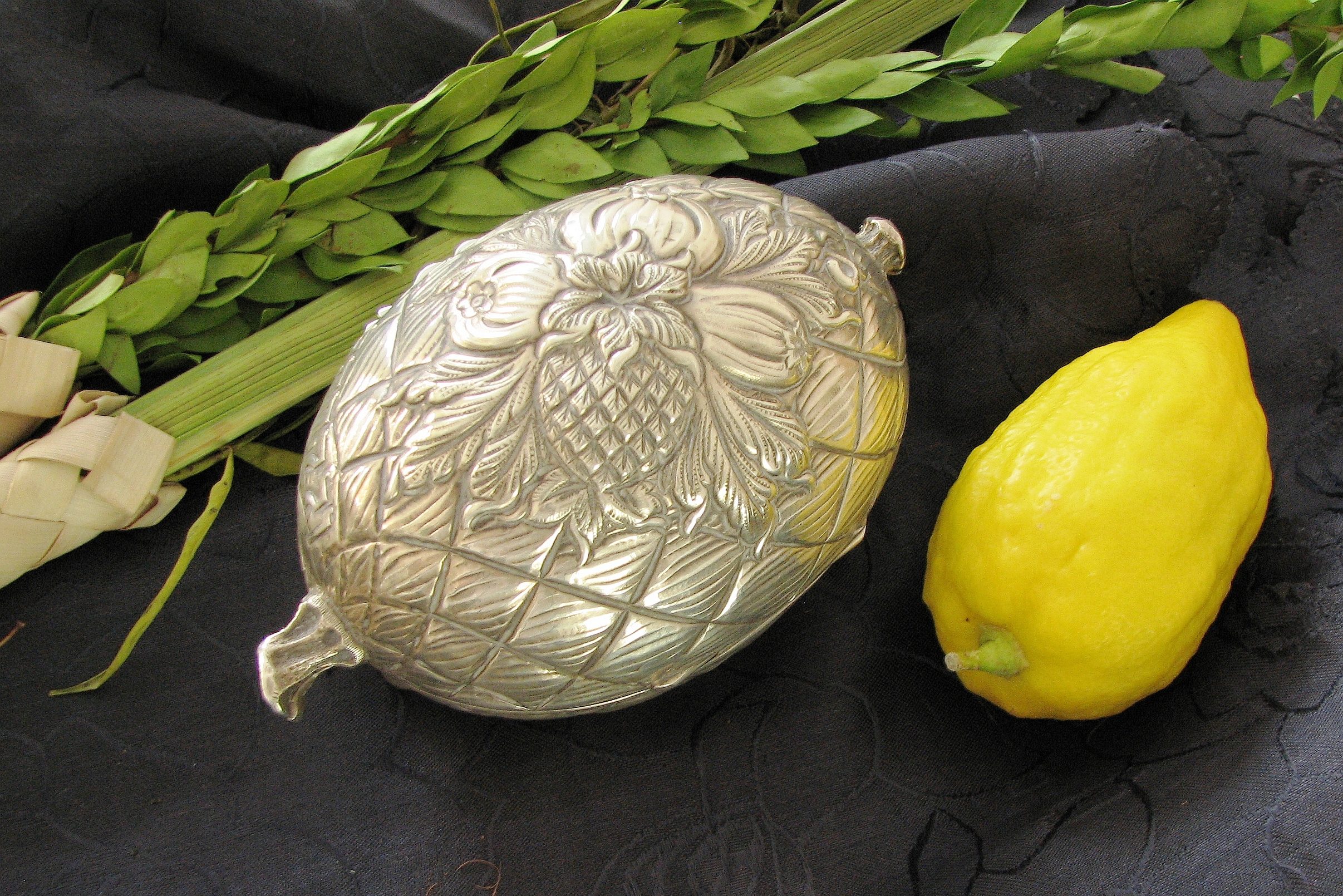 There is a commandment that is unique to Sukkot – the commandment to dwell in the Sukkah. There is another commandment which is also unique to Sukkot – the commandment to take the Four Species. In Vayikra (23:40) the verse says “And you shall take for yourself on the first day the fruit of a goodly tree, branches of palm trees, the boughs of thick trees, and willows of the brook, and you shall rejoice before Hashem your G-d for seven days.” The Gemara in the tractate of Sukkah ( 35a) explains the verse as follows: the “fruit of a goodly tree is an Etrog (citron); the branch of the palm tree is the Lulav; the “boughs of thick trees” are Hadasim (myrtle); and, the “willows of the brook” are Aravot (willow branches).
There is a commandment that is unique to Sukkot – the commandment to dwell in the Sukkah. There is another commandment which is also unique to Sukkot – the commandment to take the Four Species. In Vayikra (23:40) the verse says “And you shall take for yourself on the first day the fruit of a goodly tree, branches of palm trees, the boughs of thick trees, and willows of the brook, and you shall rejoice before Hashem your G-d for seven days.” The Gemara in the tractate of Sukkah ( 35a) explains the verse as follows: the “fruit of a goodly tree is an Etrog (citron); the branch of the palm tree is the Lulav; the “boughs of thick trees” are Hadasim (myrtle); and, the “willows of the brook” are Aravot (willow branches).
The Sefer HaChinuch (324) explains why we have this precept of the taking of the Four Species. As an introduction to the reason, he writes that man is influenced by those actions which he does on a regular basis. His thoughts are drawn to that which he does constantly, whether it be good or bad. This is why Hashem has given us many Mitzvot (commandments). By increasing the number of Mitzvot which we perform, we will always have opportunity to do Mitzvot, we will always be doing Mitzvot, and therefore have Mitzvot (and Hashem) on our mind. Furthermore, we will also be doing good all day long, for which we will be rewarded. By performing the commandments, we are to constantly focus our thoughts toward the good, and we are to remember and assure that we conduct ourselves in an honest and righteous fashion.
The reason for the taking of the four species is very similar to this reasoning. The holiday of Sukkot has another name besides “Sukkot:” The other name is “Chag Ha’Asif,” “The Harvest Festival.” It has this name because at this time of the year the crops are gathered and fruits are harvested and brought into the house. The harvest is a time of joy and happiness. G-d commanded that we have a festival at this time of happiness, so that we could take this natural reaction and channel it towards Hashem. Hashem, by His command that this happiness should be directed towards Him, provided us with another opportunity to serve Him, thereby surrounding and accustoming ourselves to the performance of Mitzvot, and meriting reward at the same time. By merely being happy, a natural reaction at this time of the year, we are fulfilling a commandment of Hashem thereby immersing ourselves in the performance of a mitzvah and meriting reward.
However, since manifestations of joy and happiness are accomplished largely through physical and material expressions, there is a danger that the manifestations of joy will be in a way that is anything but a channeling of happiness directed towards G-d. A person may come to forget Hashem during this highly emotional time and act in a way that is not in accordance with Hashem’s commandments. Therefore Hashem commanded that we should take in our hands objects that will remind us that all the rejoicing of our hearts should be for His sake and for His glory. Hashem also desired that the “reminder” be something that in it of itself causes happiness and joy, as the season is a joyful one. Therefore, the Sefer HaChinuch writes, Hashem commanded that we take the four species because “it is known in the ways of nature that all four species gladden the heart of those who see them.”
The Sefer HaChinuch adds that there is another significance to the Four Species, as they resemble certain distinctive organs of a person. The Etrog resembles the heart, which is, as the Sefer HaChinuch notes, “the seat of the intelligence.” We take a heart-shaped specie to signify that we should serve Hashem with our intelligence. The Lulav is like the spine, that which is a main element in man. We take the Lulav to signify that one should direct his entire body towards the worship of Hashem. We take the myrtle, whose leaves resemble eyes, to imply that one, on this day of happiness, should not let his eyes lead him astray. We take a willow, whose leaves resemble lips, to signify that one should focus his words and be cautious not to use them improperly at this time of rejoicing.
